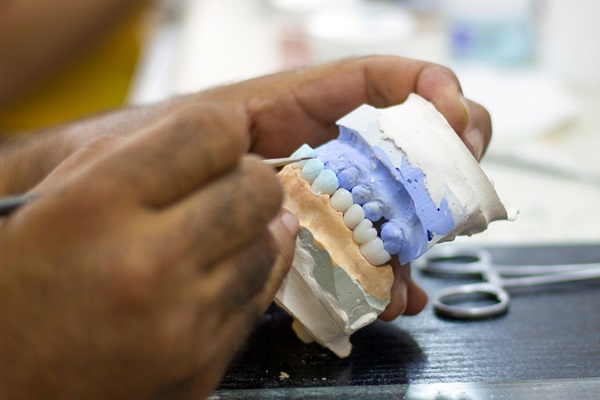Recovery Guide After Full Mouth Reconstruction

Anyone who has experienced a full mouth reconstruction knows these procedures are challenging. The processes can be long and include some pain and discomfort. The recovery process can take some time and be difficult for some people. The good news is that you can get the results you want and enjoy a brand-new smile once the procedure is over. You can get help making it through the recuperation period. There are some tips and suggestions that you should follow.
Types of full mouth reconstruction procedures
Many serious conditions can affect a person’s oral health. These same problems can also impact the aesthetics of a person’s mouth and teeth. Tooth damage and tooth loss could require invasive procedures to restore the full function of the mouth. Crowns are a common way to repair a broken, chipped, or cracked tooth. Dentures and implants are good options for replacing teeth that fell out or that the dentist had to extract. Other possibilities include veneers, bridges, onlays, and inlays.
Get some rest
Immediately following a full mouth reconstruction, the patient should avoid any strenuous activities. For the first 24 hours, the patient should also stay home from work and should not operate a vehicle or machinery. Instead, lying down and resting is one of the most effective ways to recover. The individual can gradually return to a normal routine. For the first few days after the procedure, the patient should be cautious about too much exertion.
Keep an ice pack handy
Some full mouth reconstruction procedures will cause soreness and swelling for up to a week or longer. One of the most common ways to combat these issues is to use a cold compression pack. The patient should apply one for 20 minutes at a time several times a day until the swelling goes down. If there is still swelling after five to seven days, the patient should contact the general dentist.
Take pain medication
People should not feel pain during a full mouth reconstruction, but the anesthetic will soon wear off. Pain and discomfort will usually set in after the appointment and can continue for several days. Taking an over-the-counter pain reliever can be just what the patient needs. For more intense pain, the dentist may prescribe something stronger.
Eating right
A full mouth reconstruction enables the person to once again eat foods that may have been impossible before. However, after a reconstruction procedure, this newfound ability will have to wait. The person should eat soft foods or liquids for several days or more following the procedure. Focusing on foods such as soup, applesauce, scrambled eggs, and yogurt will reduce the risk of irritating the procedure site and causing more pain. The patient can slowly eat harder foods as they feel well enough to do so.
Proper care will improve the recovery period
Everyone who undergoes a full mouth reconstruction spends time recovering. This period can be different for everyone. However, as you follow these rules and tips, you can get back to your regular activities soon. There are effective ways to manage the pain you are feeling.
Request an appointment here: https://mymarinadentist.com or call Marina Advanced Dentistry at (310) 773-5009 for an appointment in our Marina Del Rey office.
Check out what others are saying about our dental services on Yelp: Full Mouth Reconstruction in Marina Del Rey, CA.
Related Posts
A leading reason people turn to a cosmetic dentist is to get a whiter smile. Teeth whitening happens to be one of the most popular cosmetic dental procedures. However, it is not the only way a cosmetic dentist can help you get a whiter smile. Here is a closer look at your smile-brightening options.Cosmetic dentists…
Are you considering Invisalign®? Read on to learn more. Metal braces used to be the gold standard for bite issues like overbites and underbites. Now, more than four million Americans are currently undergoing some form of orthodontic treatment, many of whom are turning to Invisalign as a discreet and effective approach to correcting dental misalignment…
Scheduling an appointment with a cosmetic dentist helps you get closer to receiving your dream smile. Cosmetic dentists offer various services to address everything you do not like about your teeth. Whether one tooth is causing the problem or all of them, they have what you need.A cosmetic dentist can brighten anyone's natural teeth up…
Invisalign® for Teens is a low-maintenance, effective way to correct misaligned teeth. However, it is normal for parents to have questions about this orthodontic treatment. This guide will cover the basics of Invisalign treatment and what parents can expect throughout it.Invisalign treatment comprises a series of aligner trays, each gradually shifting the teeth into proper…
